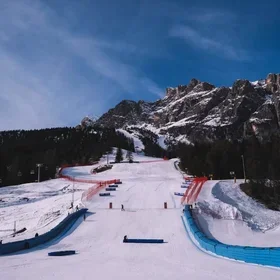This upcoming academic year, Dr. Donald P. Green, J.W. Burgess Professor of Political Science, will join the faculty teaching in the new M.S. in Political Analytics program, a unique partnership between the Department of Political Science and the School of Professional Studies. Dr. Green is the author of five books and more than 100 essays on topics including voting behavior, partisanship, media effects, campaign finance, hate crime, and research methods.
Much of his current work uses field experimentation to study the ways in which political campaigns mobilize and persuade voters. In 2010, Dr. Green founded the experimental research section of the American Political Science Association and served as its first president.
In our interview, Dr. Green discusses what students with a background in politics will gain from his forthcoming class on experiments, the growing need for evidence-based decision-making in campaigns, and the common misconceptions about memorable political campaigns.
Edited excerpts:
What drew you to teach in the Political Analytics program?
I have long been fascinated by the challenges of studying “What works?” in the context of campaigns and elections, where so many people make a living offering up authoritative-sounding answers to that question. I sense that many of the participants in the new program will have a background in politics or campaign management, and I look forward to teaching them how to design, analyze, and interpret rigorous evaluations. Who knows—perhaps they will find that experiments vindicate their long-held views. Regardless of the results, those in the program will come away with a clearer sense of why they should believe what they believe.
What is innovative about your class, and what might it accomplish that others haven’t?
The fun part of my experiments class is rolling up our sleeves and working on actual evaluations of real-world campaigns’ mobilization, persuasion, and fundraising tactics. I see my job as smuggling in all the dry statistical material while discussing lively examples. If all goes as planned, students come away with an appreciation of the broader lessons that the examples convey about research design, data analysis, and interpretation.
You’ve been involved in field experiment research for 25 years. How has this research changed the way campaigns are planned in that time? How have campaigns incorporated this type of research into strategic plans?
I’m reluctant to claim credit for any of the changes that have occurred during those years, but there is clearly a greater appetite for evidence-based decisions about how to allocate campaign resources. Rigorous experiments used to be rare; now even organizations outside academia have large and sophisticated research teams that rival their academic counterparts.
In what ways are field experiments for political campaigns changing what we know about American politics—or how are they contributing to what we know about American politics?
One of the most important contributions of field experiments is to provide a sanity check on claims about cause and effect. Quite often, historical accounts of memorable campaigns are filled with lore about the game-changing commercial that propelled the trailing candidate to victory. But field experiments on campaign advertising, especially TV advertising in advance of a general election, tend to show modest effects. It’s not that campaigns have no effect. Rather, campaigns have effects that tend to fall within a narrow margin. This fact, in turn, attests to the strength of party attachments and the relatively small share of the electorate that is truly persuadable.
What is your advice for students pursuing a career in political analytics or politics in general?
Try to take a dispassionate look at what your partisan and ideological opponents are doing, with an eye toward learning new ways that you might attract votes and campaign resources. But before drawing inferences about the effectiveness of this or that tactic, whether deployed by your side or by your opponents, critically evaluate the evidence.
About the Program
The M.S. in Political Analytics program is designed to fill an important role in the rapidly developing field of data analytics as it is applied to politics and public policy, allowing students who are interested in new approaches to data analytics—such as machine learning—to integrate those interests with a politics or policy focus. Furthermore, it will provide a clearer professional trajectory, by helping students acquire necessary skills and suitable employment after graduation.


